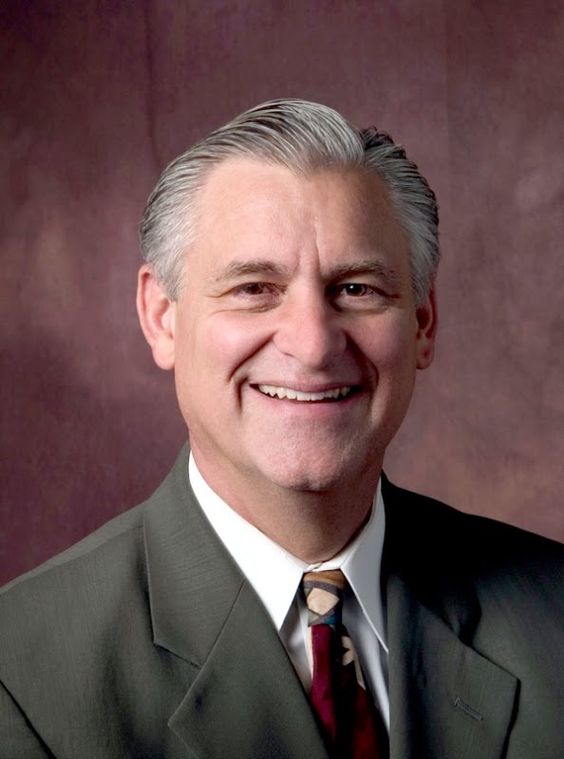
by David K. Bernard
There is one God, who has manifested Himself in human flesh as the Lord Jesus Christ. God is the Father in creation, came in His Son Jesus Christ to provide redemption, and is the Holy Spirit in regeneration. While we can thus speak of three manifestations of God for our salvation, some erroneously teach a trinity of divine persons.
One argument for the doctrine of the Trinity is that multiple divine persons are necessary to establish God’s essential nature of love. Since God is eternal and God is love, He must have an eternally existing object of love. Since nothing but God is eternal, He must consist of multiple divine persons who love each other eternally, and this interpersonal love is an example for human relationships.
God is indeed eternal and immortal (Deuteronomy 33 :27; I Timothy I: 17).
Only God has no beginning and no ending. And God is love; love is His eternal nature or essence (I John 4:8). The foregoing Trinitarian argument is flawed for many reasons, however.
First, this argument is philosophical, not scriptural. The Bible doesn’t say God’s love requires an object of love that is eternal in the same way He is. We cannot say God must conform to a human philosophical construct.
Second, it assumes God is subject to time, but God is the Creator and the Lord of everything, including time. For humans eternity is past, present, and future, but God is not defined or limited by these dimensions. If He were, time would be prior to and above Him. We should not think of God as temporal but simply as the “I AM” (Exodus 3:14). He is above and beyond time. He inhabits the eternal present. He can be, know, and love apart from time.
Humans live within time, but God sees all points of time simultaneously, including the end from the beginning. He “calleth those things which be not as though they were” (Romans 4: 17). The Lamb “was foreordained before the foundation of the world, but was manifest in these last times” (I Peter I :20) and “slain from the foundation of the world” (Revelation 13:8). From this perspective, God’s love for the Son born of Mary as well as His love for all humanity.
It is an expression of eternal love and is sufficient to establish His eternal essence as love. This doesn’t mean God’s essence is subject to creation, but as created beings we can only think of God’s essence (love, spirit, creativity, life, etc.) as it relates to creation.
Third, if eternal persons are necessary to establish divine love, then they are distinct from each other as subjects and objects, which leads to polytheism (belief in multiple gods). Trinitarians seem to say one part of God loves another part of God or one God loves another God. Either there is “otherness” (separation of essence) within God, or there are three Gods. Trinitarians typically reject both alternatives, but how then do they avoid simply saying God loves Himself? This conclusion wouldn’t provide the distinct object of love required by their philosophical argument and wouldn’t provide a model for human love either. The Oneness view avoids this dilemma by recognizing that God’s love for beings outside Himself is a true expression of His eternal love. His love is eternal because He is eternal.
Fourth, by definition love is freely chosen. Mandatory love is not love. Moreover, in Scripture love is not primarily an emotion but a choice and an act. For example, God commands us to love our enemies (Matthew 5:44). We may not have warm feelings toward those who mistreat or hate us, but we can act in a kind, loving way toward them.
Given this understanding of love, would Trinitarians say the persons of the Trinity freely choose to love each other eternally? If yes, then in theory they are so distinct that they could have chosen not to love one another, or at least not to have fellowship with one another. For instance, God has chosen not to have fellowship in eternity with beings such as the devil. If the members of the Trinity could have chosen not to relate to each other, even in principle, then again we have polytheism.
On the other hand, if the members of the Trinity have no choice but to love one another, in what meaningful sense do they have love or provide an example for us? This kind of forced “love” would not be an adequate example of God’s essential nature or His love for us. Can we say God had no choice but to love sinful humans and to provide salvation for them, so that grace is automatic? Can we say we have no choice but to love God and others, so that faith and obedience are automatic?
Fifth, if the doctrine of the Trinity is necessary to establish God’s eternal love, then God’s true nature must not have been fully evident to Old Testament believers. Yet they spoke of God’s “unfailing love” (Psalms 36:7; 63:3, NLT). Was their understanding of God deficient or naive? Did they understand God’s true essence of love? If they did, then we can do so today without the doctrine of the Trinity. It is sufficient to say God loves us. Indeed, the very passage that says “God is love” also explains His eternal love in these terms: “Herein is love, not that we loved God, but that he loved us” (I John 4:8, 10). ®
AUGUST 2014 I PENTECOSTAL HERALD 7

